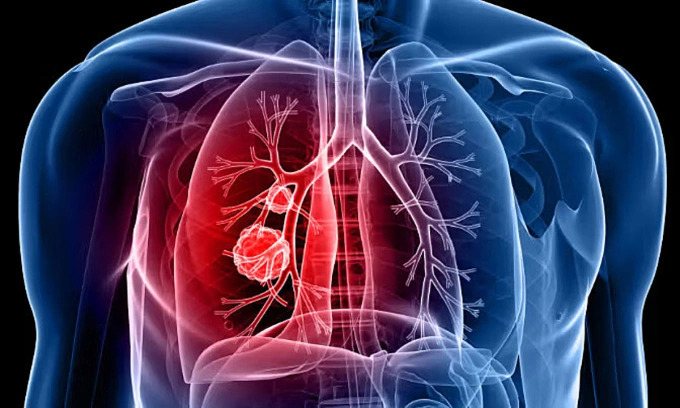Contact Admission
International Collaboration
U.S. Approves Targeted Lung Cancer Therapy Datroway
How does Datroway work — and who stands to benefit?
A superior mechanism of action: Unlike traditional chemotherapy, Datroway targets the TROP protein found on the surface of tumor cells — a protein that appears in many types of cancer. This targeted approach allows for more precise attacks on cancer cells, significantly reducing side effects compared to systemic treatments.
Eligible patients:
This is the first approved therapy in the U.S. for non-small cell lung cancer (NSCLC) patients who have already undergone other treatments without success. More specifically, Datroway offers a much-needed option for individuals with advanced-stage EGFR-mutant NSCLC who have become resistant to prior therapies, regardless of the original mutation.
Previously, Datroway had also been approved for the treatment of a specific type of breast cancer.

Illustration of a cancerous tumor growing in the patient's left lung. Image: Cure
Strategic Partnership Behind the Success
Datroway is the result of a close collaboration between two pharmaceutical giants: AstraZeneca and Daiichi Sankyo. The companies began working together years ago, with their first jointly developed product being Enhertu. In 2020, they signed a co-development and commercialization agreement for Datroway worth up to $6 billion. Following the drug’s approval in the U.S., AstraZeneca paid Daiichi Sankyo $45 million as a key milestone in the partnership.
The Significance of This Breakthrough
Lung cancer remains one of the most common and deadliest cancers worldwide. According to the World Health Organization (WHO), there are approximately 2.2 million new cases and nearly 1.8 million deaths from lung cancer each year. Non-small cell lung cancer (NSCLC) accounts for about 85% of all cases. The approval of Datroway, which targets the TROP2 protein, represents a promising new approach for patients who have developed resistance to prior therapies — offering renewed hope for millions of people around the world.
Source: VnExpress
Other news
- How Dangerous Is Nipah Virus? Medical Alert and Urgent Health Recommendations ( 14:13 - 27/01/2026 )
- Predicting Disease from Sleep – A New Breakthrough Study ( 14:01 - 13/01/2026 )
- Medical advances predicted to break through in 2026 ( 13:54 - 12/01/2026 )
- Vietnamese medical miracles in 2025 – inspiration for medical students ( 07:54 - 07/01/2026 )
- Updating the SOFA-2 Score: A New Standard in the Assessment of Multiple Organ Failure After Three Decades ( 10:40 - 31/12/2025 )
- Home AEDs: High Life-Saving Effectiveness, but Not Cost-Effective at Current Prices ( 14:12 - 18/12/2025 )
- Artificial Intelligence and Pediatric Care ( 08:27 - 16/12/2025 )
- Applying Clinical Licensing Principles to Artificial Intelligence ( 09:36 - 08/12/2025 )
- Therapeutic potential and mechanisms of mesenchymal stem cell-derived exosomes as bioactive materials in tendon–bone healing ( 08:38 - 23/11/2023 )
- Symbol of medicine ( 19:38 - 19/09/2021 )


















